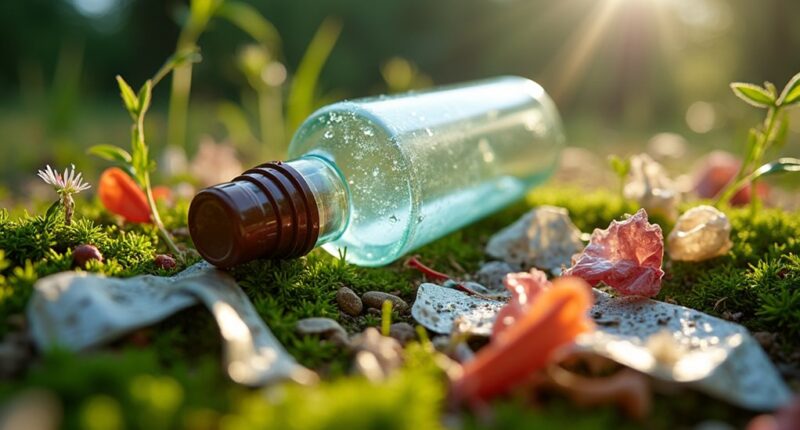Plastic waste is wreaking havoc on the beauty industry, with over 120 billion packaging units made annually and a staggering 70% ending up in landfills. Brands must step up by adopting refillable systems and collaborating with recycling initiatives like TerraCycle. Emphasizing minimalist design and compostable packaging can also lighten the load on our planet. It’s like finally trading in that old gas-guzzler for a sleek electric ride—better for everyone! Let’s see what else brands can do for a cleaner future.
The Urgent Need for Sustainable Beauty Practices
In a world where beauty often comes at the expense of the environment, the cosmetic industry finds itself in a precarious balancing act, much like a tightrope walker juggling a dozen flaming torches. With over 120 billion packaging units produced each year, the beauty sector plays a starring role in the global plastic pollution drama. Unfortunately, a staggering 70% of this packaging takes a one-way ticket to landfills, leaving a wake of environmental degradation in its path.
Only 9% of plastic waste, including the much-maligned beauty packaging, gets recycled. It’s a sad truth—microplastics and single-use plastics from beauty products not only harm marine ecosystems but also sneak into our food chains like unwelcome party crashers. 95% of cosmetic packaging discarded contributes significantly to this ongoing crisis.
The road to sustainability is paved with hurdles. Complex packaging materials, often a mix of plastics and glass, make recycling a Herculean task. On top of that, poor recycling infrastructure and consumer confusion about proper disposal methods create a perfect storm for waste accumulation. Moreover, refillable products are gaining traction, with makeup refill sales surging by 364% in 2022, indicating a shift in consumer preferences.
Bioplastics may sound eco-friendly, but they can be as resource-intensive as traditional options, and the single-use sachets and sheet masks are like that friend who always shows up empty-handed at parties—adding to the mess without contributing anything. Switching to compostable options could significantly reduce waste in landfills while returning nutrients to the soil.
Yet, not all is lost. A growing number of consumers are demanding ‘clean beauty’ and are willing to pay a premium for sustainable packaging. They’re on the lookout for refillable, plastic-free, and multi-purpose items, which is music to the ears of brands championing innovative practices.
From adopting refillable systems to collaborating with recycling programs like TerraCycle, companies are starting to turn the tide.
With several countries taking action against microplastics and advocating for a circular economy, the future of beauty could be as bright as a highlighter on a summer day. It’s time for brands to step up and embrace sustainability—not just as a trend, but as a commitment to a healthier planet.









